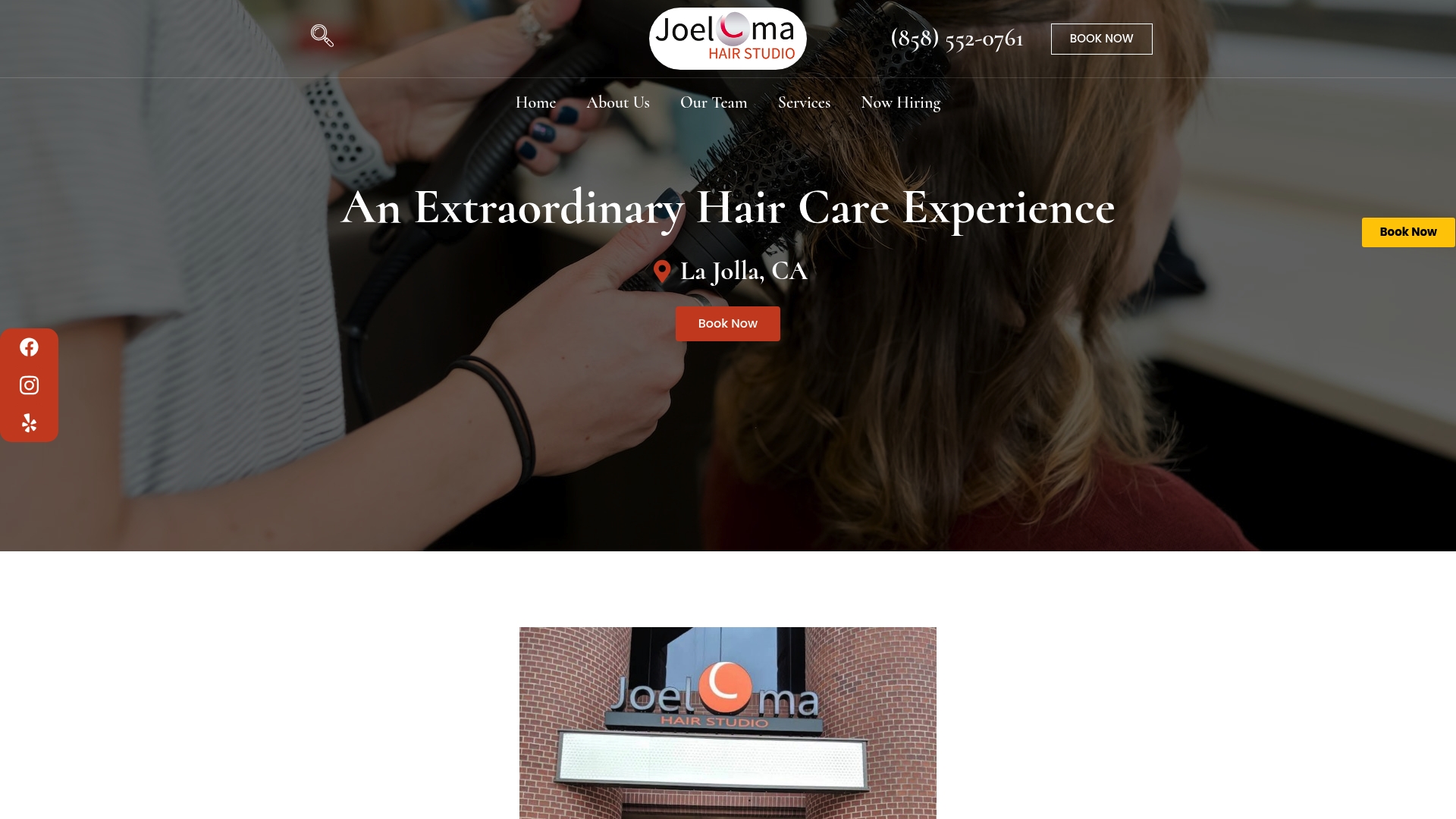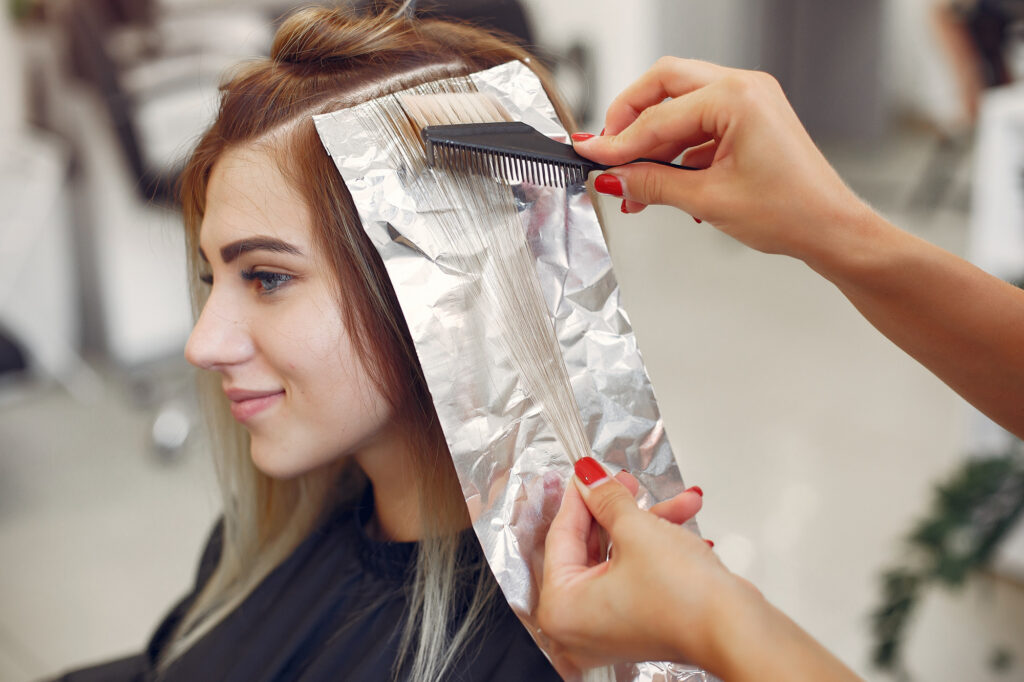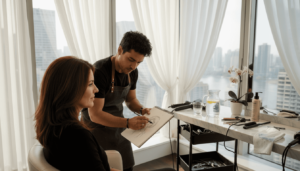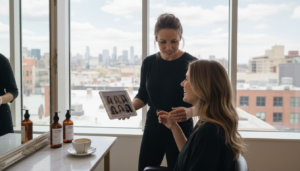Did you know that up to 90 percent of cosmetic products once contained parabens as preservatives? Many people are now more aware of what they put on their heads, searching for safer options that do not compromise health or hair quality. Shifting toward paraben-free hair care is not just about following a trend but involves a real effort to reduce risk and make smarter choices for both well-being and beautiful hair.
Key Takeaways
| Point | Details |
|---|---|
| Health Considerations | Parabens may mimic estrogen, leading to potential hormonal disruptions, prompting a shift towards paraben-free products for safer options. |
| Product Differences | Paraben-free hair care often results in improved scalp sensitivity and better preservation of natural oils, making it a gentler choice for many. |
| Choosing Wisely | Selecting paraben-free products requires attention to ingredient lists and a focus on natural options that align with personal hair care needs. |
| Salon vs. Home Care | Professional treatments can carry risks; it’s crucial to understand product safety and choose mindful at-home practices for optimal hair health. |
Table of Contents
- What Paraben Free Hair Care Means
- Differences Between Regular And Paraben Free
- Health And Safety Of Paraben Free Products
- How To Choose Paraben Free Hair Care
- Salon Treatments And At-Home Practices
What Paraben Free Hair Care Means
Imagine walking into your favorite hair salon, and instead of potentially harmful chemicals lurking in your hair products, you’re surrounded by safer, smarter formulations. Paraben-free hair care represents a revolutionary approach to personal grooming that prioritizes both your health and hair quality.
According to Healthline, parabens are chemical preservatives that have been used since the 1920s to extend product shelf life. These compounds – including methyl-, ethyl-, propyl-, and butyl-paraben – can potentially mimic estrogen in the body, raising significant health concerns. Key risks associated with parabens include:
- Potential hormonal system disruption
- Possible links to breast cancer cell growth
- Risk of allergic reactions
- Potential skin irritation
- Environmental bioaccumulation
Choosing paraben-free hair care isn’t just a trend – it’s a conscious decision to protect your health and the environment. By selecting products that eliminate these chemical preservatives, you’re making a proactive choice to reduce potential long-term risks while maintaining beautiful, healthy hair. Modern hair care formulations now offer advanced preservation techniques that effectively protect product integrity without compromising your well-being.
Differences Between Regular and Paraben Free
When it comes to hair care, not all products are created equal. Regular hair products and paraben-free alternatives have some fundamental differences that can significantly impact your hair’s health and appearance.
According to Garnier, the key distinctions emerge in how these products interact with your hair and scalp. Regular products typically use sulfates and parabens for cleaning and preservation, while paraben-free formulations offer gentler approaches. The benefits of paraben-free products include:
Here’s a comparison of regular vs. paraben-free hair care products:
| Feature | Regular Hair Products | Paraben-Free Hair Products |
|---|---|---|
| Preservatives Used | Parabens Sulfates |
Non-paraben alternatives |
| Scalp Sensitivity | Can irritate May trigger allergies |
Gentler Better for sensitive skin |
| Color Protection | May fade color | Helps retain color |
| Natural Oil Retention | Strips natural oils | Retains hair’s natural oils |
| Suitability for Curly/Coily Hair | Can dry out strands | More nourishing for curls |
| Preservation Risks | Stable, proven | Potential microbial contamination |
| Regulatory Understanding | Well-studied, safety limits set | Newer, less research on alternatives |
- Retaining natural hair oils
- Better color preservation
- Minimized scalp irritation
- Enhanced gentleness for sensitive scalps
- Improved care for curly and coily hair textures
![]()
However, Allure highlights an important nuance: parabens are actually effective preservatives that have been demonstrated safe at low concentrations. Paraben-free alternatives might introduce new challenges, such as potential microbial contamination or less predictable preservation methods. This means that while the intention is to create a safer product, the alternative preservatives might not always be thoroughly tested or understood.
Ultimately, the choice between regular and paraben-free products depends on your personal hair needs, sensitivity, and comfort level with different preservation techniques. Consulting with a professional stylist can help you navigate these options and find the most suitable hair care approach for your unique hair type and concerns.

Health and Safety of Paraben Free Products
Hair care safety is more than just a buzzword – it’s about understanding the potential long-term impacts of the products we use daily. When it comes to parabens, the conversation goes beyond simple ingredient avoidance and delves into complex health considerations.
According to Beauty Bomb, parabens can potentially mimic estrogen in the body, raising legitimate concerns about hormonal disruption. For individuals with sensitive skin or those proactively managing their health, switching to paraben-free hair products offers several potential benefits:
- Reduced risk of scalp irritation
- Minimized potential hormonal interference
- Lower exposure to synthetic chemical preservatives
- Enhanced skin and scalp protection
- Support for more natural body processes
Interestingly, the Netherlands Food and Consumer Product Safety Authority discovered that individual product exposure remains within safety thresholds. However, they also emphasized the critical need for ongoing research, particularly regarding cumulative exposure from multiple products.
Ultimately, choosing paraben-free products is a personal health decision.
While current research doesn’t definitively prove extreme risks, the precautionary approach of selecting gentler, more natural formulations can provide peace of mind. Consulting with healthcare professionals and staying informed about emerging research can help you make the most empowered choices for your personal care routine.
How to Choose Paraben Free Hair Care
Finding the right paraben-free hair care product isn’t just about avoiding chemicals – it’s about discovering a holistic approach to hair health that aligns with your personal needs and values. Think of it like choosing the perfect outfit: it’s got to look good, feel great, and make you feel confident.
According to Partners Hair, selecting paraben-free hair care involves a strategic approach. Your shopping checklist should include:
- Carefully reading ingredient lists
- Looking for clear ‘paraben-free’ labeling
- Prioritizing natural and organic ingredients
- Considering cruelty-free certifications
- Checking for potential scent sensitivities
- Comparing price points
- Experimenting with travel-size samples
Botani Bestie recommends a two-step evaluation process. First, identify and eliminate harmful ingredients like:
- Parabens
- Sulfates
- Silicones
- Formaldehyde-releasing preservatives
Then, actively seek products containing beneficial ingredients such as natural oils, herbal extracts, and strengthening active compounds that genuinely nourish and protect your hair.
Remember, the perfect paraben-free product is a personal journey. What works brilliantly for someone else might not be your ideal match. Don’t be afraid to experiment, ask for professional recommendations, and trust your hair’s unique needs. Your hair deserves care that’s as individual as you are.
Salon Treatments and At-Home Practices
Navigating the world of hair care requires a careful balance between professional salon treatments and mindful at-home practices. Your hair’s health isn’t just about what happens in the styling chair – it’s a comprehensive approach that demands awareness, education, and proactive decision-making.
According to Live Science, even treatments labeled as ‘free-from’ certain chemicals can pose unexpected health risks. Some alternatives like glyoxylic acid, commonly used in place of formaldehyde, have been associated with serious side effects including:
- Acute kidney injury
- Scalp rashes
- Potential long-term health complications
- Unexpected allergic reactions
Moreover, The Guardian highlights critical concerns about chemical treatments, especially chemical relaxers, which have been linked to significant health risks such as elevated uterine cancer and fibroid development. These findings underscore the importance of understanding restorative hair treatments and making informed choices.
For those seeking safer alternatives, consider prioritizing natural treatments, consulting professional stylists who specialize in gentle techniques, and thoroughly researching product ingredients. Your hair care routine should be a personalized journey that balances aesthetic desires with your overall health and well-being.
Elevate Your Hair Care with Personalized Paraben-Free Solutions
Are you searching for paraben-free hair treatments that are both safe and truly effective? Many readers of our complete guide want to avoid hormonal disruptions and irritation, but struggle to find premium salon services that match their personal health goals. At Joel C Ma Hair Studio, we understand the challenges discussed in this article, including the difficulty of choosing the right formulations and ensuring scalp sensitivity is respected. Our experienced team brings over 25 years of expertise to every appointment, using advanced techniques and carefully selected products that prioritize your wellbeing. For additional insights on the latest safe hair care practices, visit our Uncategorized Archives for more resources and client experiences.

Take the first step toward beautiful, vibrant, and healthy hair—without compromise. Book your personalized consultation at Joel C Ma Hair Studio to experience luxury, artistry, and expert-driven guidance in paraben-free hair care. Secure your spot today and discover a tailored approach designed just for you.
Frequently Asked Questions
What are parabens and why are they used in hair care products?
Parabens are chemical preservatives used since the 1920s to extend the shelf life of hair care products. They can mimic estrogen in the body, raising health concerns about potential hormonal disruptions and allergic reactions.
How do paraben-free hair products differ from regular hair products?
Paraben-free hair products use alternative preservation methods that are typically gentler on the hair and scalp. They often retain natural oils, provide better color preservation, and are less likely to irritate sensitive skin compared to regular products that contain parabens and sulfates.
What are the benefits of using paraben-free hair care?
The benefits of using paraben-free hair care include reduced risk of scalp irritation, minimized potential hormonal interference, lower exposure to synthetic preservatives, and support for natural hair processes, ultimately leading to healthier hair.
How can I choose the right paraben-free hair care products?
When choosing paraben-free hair care products, carefully read ingredient labels, look for clear ‘paraben-free’ labeling, prioritize natural and organic ingredients, and consider cruelty-free certifications. It’s also helpful to eliminate harmful ingredients and look for beneficial components that nourish and protect your hair.
Recommended
- Hair Health Essentials 2025: Luxury Tips for La Jolla – Joel C Ma Hair Studio
- Protecting Hair From Heat: The Essential Guide – Joel C Ma Hair Studio
- Straight Hair Styling Tips for Effortless Elegance in 2025 – Joel C Ma Hair Studio
- Understanding the Signs of Unhealthy Hair for Luxurious Styles – Joel C Ma Hair Studio
- Damaged Hair Care Guide 2025: Restore, Protect & Grow | MyHair





